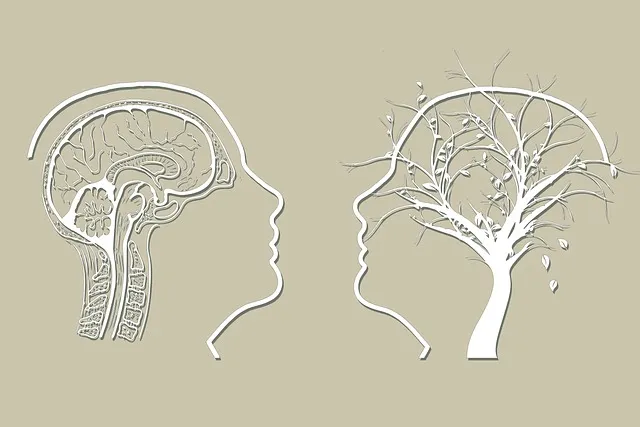Longmont Kaiser Permanente prioritizes culturally sensitive mental healthcare through comprehensive coverage and tailored support. They recognize that effective treatment requires understanding diverse backgrounds, fostering trust, and implementing cross-cultural communication strategies. By training staff on unconscious biases, offering self-awareness exercises, and encouraging journaling, they create a safe environment. These practices enhance patient outcomes, address unique cultural challenges like discrimination and acculturation stress, and promote positive thinking in a supportive setting. Longmont Kaiser Permanente's commitment to diversity ensures mental health services are accessible and effective for all.
“Cultural sensitivity in mental healthcare is more than a nicety; it’s a necessity. As diverse communities seek support, understanding cultural contexts becomes vital for effective treatment. This article explores this critical aspect through three key sections.
First, we’ll delve into the significance of cultural sensitivity and its impact on mental health outcomes. Then, we’ll spotlight Longmont Kaiser Permanente’s innovative approach to mental health coverage and diversity, setting a standard for inclusive care. Finally, best practices will be presented to guide providers in delivering culturally sensitive services, ensuring every patient receives personalized, compassionate treatment.”
- Understanding Cultural Sensitivity: Why It Matters in Mental Healthcare
- Longmont Kaiser Permanente's Approach to Mental Health Coverage and Diversity
- Best Practices for Culturally Sensitive Mental Healthcare Services
Understanding Cultural Sensitivity: Why It Matters in Mental Healthcare

In today’s diverse society, cultural sensitivity in mental healthcare is no longer a nice-to-have but an essential aspect of quality care. Understanding and respecting cultural differences can significantly impact patient outcomes, especially when addressing complex mental health issues. For instance, Longmont Kaiser Permanente offers comprehensive mental health coverage, recognizing that effective treatment requires tailoring support to individual needs, which are often shaped by cultural backgrounds.
Cultural sensitivity involves being mindful of beliefs, values, and practices that vary across different communities. This awareness is crucial in fostering trust between healthcare providers and patients, encouraging open communication, and ensuring culturally appropriate interventions. For example, when working with individuals from diverse ethnic groups, mental health professionals must be sensitive to the impact of discrimination, acculturation stress, or unique family dynamics on a patient’s mood management and emotional intelligence. By incorporating these considerations, practitioners can promote positive thinking and facilitate healing journeys tailored to each person’s cultural context.
Longmont Kaiser Permanente's Approach to Mental Health Coverage and Diversity

Longmont Kaiser Permanente stands out for its comprehensive approach to mental health coverage and diversity. The organization prioritizes cultural sensitivity by integrating self-awareness exercises and emotional intelligence training into their care model. This proactive strategy ensures that patients from various backgrounds receive tailored support, fostering a safe and inclusive environment.
By encouraging mental wellness journaling exercises, Longmont Kaiser Permanente promotes reflection and self-care. This guidance empowers individuals to document their emotions, track progress, and develop coping mechanisms aligned with their unique cultural perspectives. Such initiatives contribute to improved patient outcomes and enhanced access to quality mental healthcare services for diverse communities.
Best Practices for Culturally Sensitive Mental Healthcare Services

Providing culturally sensitive mental healthcare services requires a deep understanding and appreciation of diverse cultural beliefs, values, and practices. At Longmont Kaiser Permanente, best practices are implemented to ensure every patient receives care tailored to their unique background. This includes thorough training for mental health professionals on unconscious biases, cross-cultural communication techniques, and the integration of culturally relevant therapeutic approaches. By fostering an inclusive environment, healthcare providers can build stronger relationships with patients from various cultural communities.
Risk Management Planning for Mental Health Professionals plays a crucial role in delivering sensitive care. Regular Stress Management Workshops Organization sessions help professionals manage their own stress levels, ensuring they remain empathetic and effective. Additionally, encouraging positive thinking among both staff and patients has been shown to improve outcomes. Through these comprehensive strategies, Longmont Kaiser Permanente’s mental health coverage aims to create a safe and supportive space where cultural sensitivity is the cornerstone of every interaction.
Cultural sensitivity is a cornerstone of effective mental healthcare, ensuring that services are accessible and tailored to diverse patient needs. As highlighted by Longmont Kaiser Permanente’s inclusive mental health coverage and its commitment to diversity, integrating cultural awareness can significantly improve outcomes. By adopting best practices such as providing language-appropriate resources, incorporating culturally relevant therapies, and offering comprehensive training for staff, mental healthcare providers can create a more welcoming environment. This, in turn, encourages individuals from diverse backgrounds to seek the support they need, fostering better mental well-being within communities.






